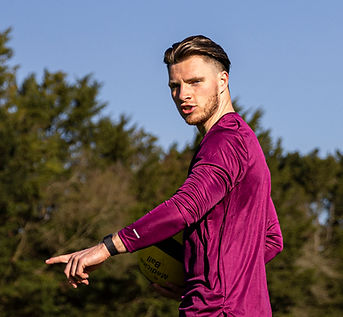How, Where, When & Why
we coach...
How? Our in person coaching is carried out in a positive manner, with fun and enjoyment being at the forefront of our thinking. This is vital when trying to instil exercise adherence among individuals who may have a tendency to avoid or refuse to participate in exercise, as participation and practice are the keys to longterm development.
We stride to teach the people we work with that failure is not a negative, the more we fail the more we improve. We encourage everyone we work with to face failure with a positive outlook.
Where and When? We coach, plan and provide sessions aiming to accommodate for all. Here are some contrasting examples of people who equally need and benefit from movement coaching; a high intensity interval training session for adults with dyspraxia or suspected coordination difficulties. A home one to one session for an autistic 7 year old, in which we must avoid sensory overload and unexpected change while making everything train (or plane/tank) related. Or group PE type sessions throughout the school day at mainstream, private and SEN schools.
We are experts in fitting in, whatever your need we will make it work. If you have any questions please contact us below.
Why? Gross motor skills refer to large movement patterns involving the whole body such as walking, running, jumping, and hopping and these skills develop from birth starting with rolling and crawling and gradually becoming more complex such as swimming, bike riding and participating in sports. Gross motor skills develop with regular and varied physical activity and as children today are becoming less active it is important to give them plenty of opportunities for movement. Delays and difficulties with gross motor coordination can impact on many areas of a child’s life - their confidence and wellbeing if they are unable to perform as well as their peers, their social skills if they are unable to join in with team games such as football on the playground. Delays in gross motor skills can also lead to problems with fine motor abilities, handwriting development and being able to remain seated in their chair at school.
If your child is experiencing significant difficulties with their gross motor development, please visit your GP for a referral to a Paediatrician and / or an assessment by an Occupational Therapist or Physiotherapist may be required.

Our Results
If our testimonials are not enough to convince you of how successful our work has been so far, have a read of my dissertation project.
Dissertation Title:
"Developing Sporting Characteristics in Key Stage One Children through a Gross Motor and Fundamental Motor Skills Intervention Programme."

If you would like to review the study please click the link;
Introduction
The Study was an intervention study of KS2 (6-7 years old) children comparing a controlled group against the intervention group. A standardised test to measure gross motor skills was carried out pre and post intervention for both groups. A Likert scale to measure exercise enjoyment pre and post intervention was also used.
The results we found were incredible.
Results
The results were a by-product of 10 intervention session lasting 50 minutes each (a total of just over 8 hours of extra practice).
-
The Intervention groups scores improved 42% more than the control groups.
-
The children who initially scored below average improved by 51.5%.
-
Upper Limb Coordination improved almost 7 times more than the improvement of the control group.
Conclusion
My conclusion of the intervention study was that practice time is important but what is even more vital is what you do in that time.
